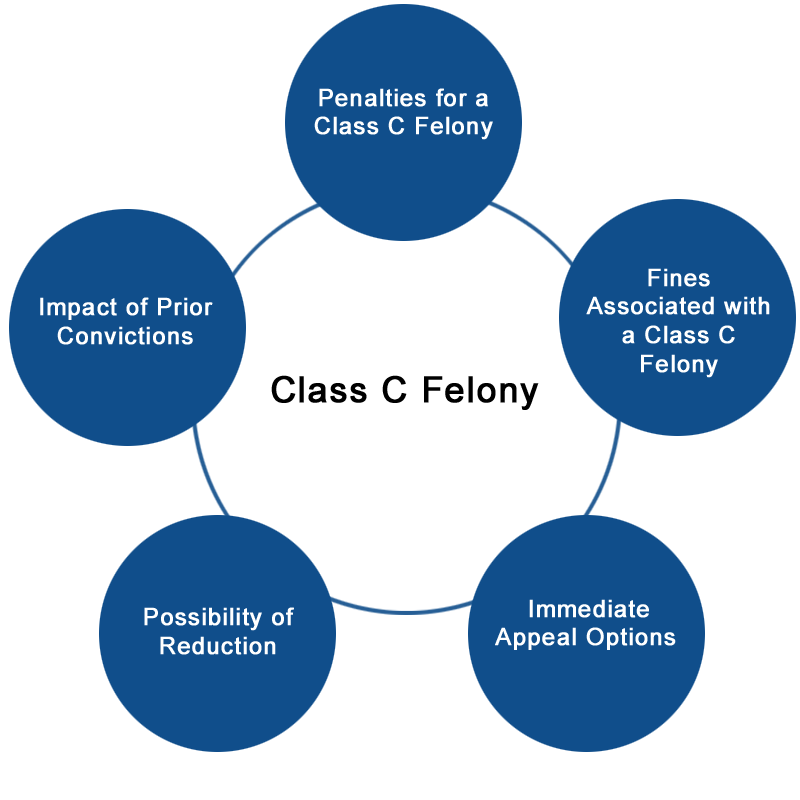
Class C Felony in Wisconsin
Facing charges for a Class C felony can be terrifying. Fear, worry, and uncertainty make it hard to have hope about your case, but that is exactly what you need. At Tracey Wood & Associates, we work hard to restore your hope for your case. You’re not automatically going to jail just because you’ve been charged.
We educate our clients so they feel empowered about their chances and hopeful for their futures. Knowing what you’re facing means you can focus on how you’re going to fight your charges, and you don’t have to do it alone.
What Is the Difference Between a Felony and a Misdemeanor?
The lengths of the prison sentence and accompanying fines described in Wisconsin laws determine whether a crime is a felony or a misdemeanor. Crimes with sentences of one year or more are felonies. Crimes with sentences of less than one year are misdemeanors.
What Are the Penalties for a Class C Felony?
Class C felonies carry a maximum 40-year sentence.
What Are the Fines for a Class C Felony?
Class C felonies carry maximum fines of $100,000.
Can You Immediately Appeal a Class C Felony?
You can immediately appeal a Class C Felony. Once you’ve been sentenced, you must submit a “notice of intent to seek post-conviction relief” within 20 days. That notice begins the appeal process. Depending on the type of appeal, the next step is to return to trial court to argue new elements of the case or to go to the Court of Appeals. If there was a procedural error or some kind of misconduct, we would return to trial court. If there was a constitutional rights violation, we would go to the Court of Appeals.
 Can a Class C Felony Be Reduced to a Different Class?
Can a Class C Felony Be Reduced to a Different Class?
Possibly. There are two ways to get a Class C felony reduced – by negotiating a reduced sentence prior to the trial or by including a “lesser included offense” with the charges that the jury considers. Basically, the jury then has the option to convict on a reduced charge.
What Happens to Repeat Offenders if They’re Charged with a Class C Felony?
If you’ve previously been convicted of a crime and charged with a Class C felony, the punishments are more likely to be severe.
What Are the Civil Liberties That Are Removed from Somebody That Has a Class C Felony?
You will lose the right to vote for the duration of your sentence, including any probation. You will be able to vote after you’ve completed your full sentence, including paying all fines. Additionally, convicted felons are not legally allowed to possess firearms or serve on juries. You may face other collateral consequences including loss of child custody or visitation, loss of your job, and a restricted ability to travel to certain countries.
Are There Ways to Get Early Parole with a Class C Felony?
It depends on the circumstances of your case. Each case is unique.
Will a Class C Felony Conviction Cause Someone to Be Removed or Deported from the U.S.?
Certain types of crimes have a high potential for deportation, including drug crimes, crimes of violence, domestic violence, aggravated crimes, and crimes of moral turpitude or crimes that violate moral standards. However, your risk of deportation depends on other factors, including how long you’ve been in the U.S., the type of visa you hold, and your immigration status.
It’s Important to Have Hope
In order to fight back, you must maintain hope about your case. At Tracey Wood & Associates, we strongly believe in helping you maintain hope by empowering you with education and formulating a strong defense by listening to your side of the story.
Schedule a free, no-obligation consultation to learn more about your options.
Featured in The Media




Call (608) 490-5779 or Schedule a Free Case Evaluation Online


